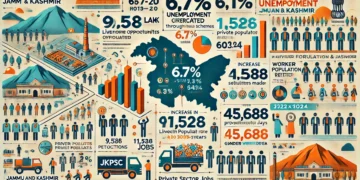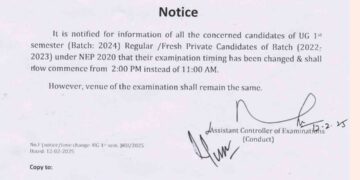Shopian Date 27-09-2024
Fruit growers in Kashmir are deeply concerned about the abrupt drop in apple prices in Indian markets.
Growers from many regions reported lesser production this year owing to hailstorm damage, which increased their losses.
Initially, there was high demand for apples, but prices have decreased dramatically in the last week, compounding their problems, they complained.
Farooq Ahmad Bhat, a Shopian grower, stated that while demand was strong at the start of the season, it has since diminished, resulting in a market fall of approximately 30%. “Growers are facing losses as the costs of labour, transportation and packaging materials are skyrocketing, yet prices have plummeted,” he told me.
“Many are not even recovering their expenses from this year’s crop.”Growers claim that the early import of apples from Afghanistan has further reduced demand for Kashmiri apples. Although the horticultural area is expanding and output is increasing, the market for local apples is still poor, according to them.
Despite a drop in conventional apple production this year, growers are dissatisfied by low demand, which is partly due to the early arrival of imports from Afghanistan.
“The costs of fertilisers, pesticides, labour and transportation are now higher than the returns we receive, despite dedicating a full year to our orchards,” they told me.Basheer Ahmad Basheer, president of the Kashmir Valley Fruit producers and Dealers Union, an elected body that represents all fruit producers in the valley, told KNO that the market has shrunk by over 30%, leaving growers concerned for their future.
He stated that early imports from Afghanistan, which generally begin in late October or November, play a significant role in this slump. The crop decrease has also prompted many growers to harvest apples in large quantities, crowding the market and driving prices even lower.
“There is an urgent need for a ban on apple imports from Afghanistan, Iran and other countries to protect local growers and traders from further financial strain,” Basheer told CNN.(KNO)










































